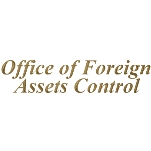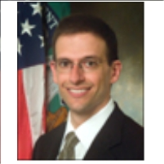OFAC can trace its history back to a number of precursory institutions, and has its true beginnings in the economic sanctions imposed by the American government on the British during the war of 1812. Its first modern precursor, the Office of Foreign Funds Control (FFC) was established in 1940 when the Nazi regime invaded Norway. The FFC was administered by the secretary of the treasury, and was designed to prevent forced remittances to Nazi-occupied countries. The Office protected foreigners’ assets in the U.S. and also impeded the Nazis’ ability to fund their war machine. OFAC was officially formed in 1950, when China entered the Korean War on the side of North Korea and President Truman declared a national emergency, freezing all Chinese and North Korean assets.
U.S.Treasury says Toronto non-profit funds Tigers: Assets Frozen (by Stewart Bell, National Post)
Papers Detail Complaints of Links to Treasury List
(by Neil MacFarquhar, New York Times)
Average fine for dealing with terrorist nations plunged after Sept. 11 (by Matt Kelley, Associated Press)
Robert Werner, the director of OFAC between October 2004 and March 2006, left to direct FinCEN from March 2006 until November of 2006, when he left to accept a position at Merrill Lynch as a managing director and head of its monetary and financial group and its bank compliance group.
- Table of Contents
- Overview
- History
- What it Does
- Where Does the Money Go
- Controversies
- Suggested Reforms
- Comments
- Leave a comment


- Latest News
- D.C. Public Schools will Teach all Second-Graders to Ride a Bike
- New Rule in Germany Limits Sales of Sex-Themed E-Books to 10pm to 6am
- What Happened to the 6-Year-Old Tibetan Boy the Chinese Government Kidnapped 20 Years Ago?
- U.S. Ambassador to Turkey Photoshops his Hair Color to Mock Turkish Mayor
- Mystery Artist Calls Attention to Unfixed Potholes by Drawing Penises around Them
OFAC can trace its history back to a number of precursory institutions, and has its true beginnings in the economic sanctions imposed by the American government on the British during the war of 1812. Its first modern precursor, the Office of Foreign Funds Control (FFC) was established in 1940 when the Nazi regime invaded Norway. The FFC was administered by the secretary of the treasury, and was designed to prevent forced remittances to Nazi-occupied countries. The Office protected foreigners’ assets in the U.S. and also impeded the Nazis’ ability to fund their war machine. OFAC was officially formed in 1950, when China entered the Korean War on the side of North Korea and President Truman declared a national emergency, freezing all Chinese and North Korean assets.
U.S.Treasury says Toronto non-profit funds Tigers: Assets Frozen (by Stewart Bell, National Post)
Papers Detail Complaints of Links to Treasury List
(by Neil MacFarquhar, New York Times)
Average fine for dealing with terrorist nations plunged after Sept. 11 (by Matt Kelley, Associated Press)
Robert Werner, the director of OFAC between October 2004 and March 2006, left to direct FinCEN from March 2006 until November of 2006, when he left to accept a position at Merrill Lynch as a managing director and head of its monetary and financial group and its bank compliance group.
Comments


- Latest News
- D.C. Public Schools will Teach all Second-Graders to Ride a Bike
- New Rule in Germany Limits Sales of Sex-Themed E-Books to 10pm to 6am
- What Happened to the 6-Year-Old Tibetan Boy the Chinese Government Kidnapped 20 Years Ago?
- U.S. Ambassador to Turkey Photoshops his Hair Color to Mock Turkish Mayor
- Mystery Artist Calls Attention to Unfixed Potholes by Drawing Penises around Them





Comments